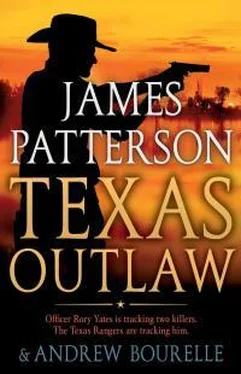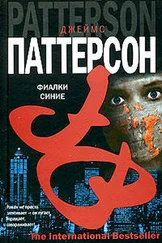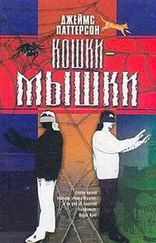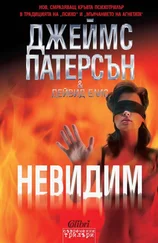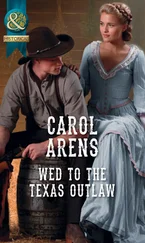The eyes of the guy with the Beretta dart to the pistol on my hip, then back up to my face. I can tell what he’s thinking. He’s wondering how to disarm me. If he gets close enough to reach for the pistol, maybe I can disarm and disable him. Asking me to remove it from the holster and drop it will risk putting a gun into one of my hands, even if he insists I use the left one. Or I could leave my hands right where they are, shoulder high and far from my gun belt.
“I don’t want any trouble,” I say to the guy. “I’m going to let you walk right out of here. You don’t want to hurt anyone.”
“If anyone’s gonna get hurt, Ranger, it’s you. I hate the fucking Texas Rangers. I might kill you just ’cause I feel like it.”
The guy’s voice is rough and strained. These guys might be professionals, but this one’s nerves are shot. I need to find a way to keep him under control.
“Let me remind you,” I say, maintaining a steady, calm voice, “killing a Texas Ranger is capital murder. They’ll give you the needle for it.”
In other states, death-row inmates die of old age while their lawyers delay their sentences with endless appeals. But this is Texas, which executed more people last year than every other state combined.
The hand holding the gun trembles slightly.
“It’s also capital murder,” I say, “to kill someone during the execution of a robbery. If you shoot anyone today, anyone at all, that’s a death sentence. Automatically.”
I’ve scared him, which isn’t necessarily a good thing.
“You and your partner are free to go,” I assure him. “I don’t care about the money you’re stealing. Maybe you’ll get caught at a later date. Maybe you’ll get away with it. That’s not my problem today. What I care about is that no one gets hurt.”
I can’t gauge the impact of my words. The guy watches as his partner lugs two loaded duffel bags, one on each shoulder. He hauls them up onto the counter and then, like a bank robber in a movie, climbs atop the marble. He stands and shoulders the assault rifle, swinging it around at the people standing in the lobby.
Some are crying. Some are shaking. All of them look scared to death.
“All right,” Mr. AR-15 announces, breath heaving from carrying the bags, “since we had the bad luck of a Texas Ranger walking in on us, we’re going to have to take us a hostage.”
“There’s no need to take any hostages,” I say. “I’m going to let you walk right out of here.”
“We seen you circle the parking lot,” he says. “We know there’s another Ranger out there. We need some insurance we won’t be followed.”
Mr. AR-15 looks overly confident, crazed almost. But his partner, Mr. Beretta—I can tell he’s spooked. His eyes bulge in his mask. And his arm is getting tired, too. His gun hand is shaking more and more.
“If you have to take anyone,” I say, “take me.”
Chapter 3
MR. AR-15 GIVES me a look that says he’s considering my request.
“I’ve got handcuffs on my belt,” I say. “Put them on me. Get one of the tellers to give you a canvas money bag to put over my head. I won’t see a thing. You can leave me wherever you want once you know you’re safe.”
His eyes drop from my face to the belt at my waist. The cuffs are on one side, the loaded gun on the other. He knows he won’t be safe as long as I’m armed.
“Ain’t gonna happen, Ranger,” he says. “We’re gonna take us one of these pretty little customers. The kind that they’ll put all over the news, saying, ‘Those damn Texas Rangers fucked up and got that little girl killed.’”
He uses his assault rifle as a pointer. “Eeny, meeny, miny, moe,” he says.
Each person cringes as the gun aims at them before moving on.
“You are it, ” he says finally, aiming the rifle at the youngest person in the room, a pretty girl who can’t be eighteen. She lets out a sob, and her eyes swim with tears.
I have to do something.
And I have to do it now.
Mr. AR-15 bends his knees like he’s going to hop down off the counter, but my best chance—my only chance—depends on keeping him above the rest of the crowd. It will be safer for all of the bystanders if I’m shooting upward.
“Wait!” I yell as loudly as I can.
My shift in tone has caught everyone by surprise. Let’s see if I can surprise them again.
What happens next takes only a couple of seconds.
Three at the most.
I drop into a crouch, reaching for my gun as I do. My cowboy hat flies off my head as if yanked by a string, and only in that split second am I aware that Mr. Beretta has pulled the trigger and filled the silence with the roar of a gunshot.
I land on one knee, in a shooting stance, and raise my pistol. Mr. Beretta is closer, but Mr. AR-15 is more dangerous. I draw a bead on the center of his black mask as he’s bringing the assault rifle around. I squeeze the trigger and his head snaps back. Blood splatters the ceiling. His body leans and he starts to fall backward off the counter, but I’m already shifting, swinging my gun onto Mr. Beretta. It’s only been an instant since he fired his pistol. He’s moving fast, and in a fraction of a second, he’ll have his gun aimed between my eyes. But I don’t give him a fraction of a second. My sight is already locked on the black mask.
I squeeze the trigger.
His body hits the floor an instant after I hear the thump of Mr. AR-15 landing behind the counter.
The air is full of the acrid smell of gunpowder and screaming. I take a moment to verify both men are dead. Then I call out and ask if anyone is injured. People are crying, in shock—they’ll be traumatized for life—but no one is hurt.
My eyes drift to my cowboy hat, lying on the floor. There’s a dime-sized hole through the crown. An inch lower and the bullet would have punched a crater in the top of my skull. I’m in a trance for a few seconds, looking at the hat. Then I hear the door of the bank burst open. I whirl around with my SIG Sauer, but I pull up and point the barrel at the ceiling.
My lieutenant, Kyle, is at the door, out of breath and gun in hand. His face is a picture of absolute surprise. He takes in the scene and then adjusts his hat on his head.
“I’ll be damned,” he says. “What’d I miss?”
Chapter 4
THAT EVENING, AS the sun sits low on the horizon, I pull my F-150 into the driveway at my parents’ ranch. I live here, in a separate house that’s less than a year old. My place is on a small hill overlooking the spot where a bunkhouse for ranch hands used to be, back when hired cowboys lived on the property. I like the view from the little two-bedroom home that Willow and I briefly shared before she moved to Nashville.
I pass my parents’ house, the home I grew up in. Mom is out working in the garden, and Dad is on the porch, whittling a block of wood.
I pull to a stop but don’t get out.
“I’m okay,” I say as they approach the truck, their expressions revealing they’ve been sick with worry. They’ve already heard what happened.
We talk for a few minutes as I try to set their minds at ease. I’m still numb from the deadly events at the bank, and I just want to be alone. But it can’t be easy having a son who wears a tin star to work every day, so I try to reassure them.
One of the reasons I moved back to the property was that I wanted to be close so I could help out. Dad had a bout with cancer last year. He’s in remission now and doing great. Most of the time it feels like Mom and Dad are helping me out and not the other way around. Tonight is no different. Mom says she made extra for supper and brings me a plate wrapped in cellophane, a venison sirloin with fried okra and mashed potatoes on the side. When I get to my place, I set the plate on the table but don’t unwrap it.
Читать дальше
